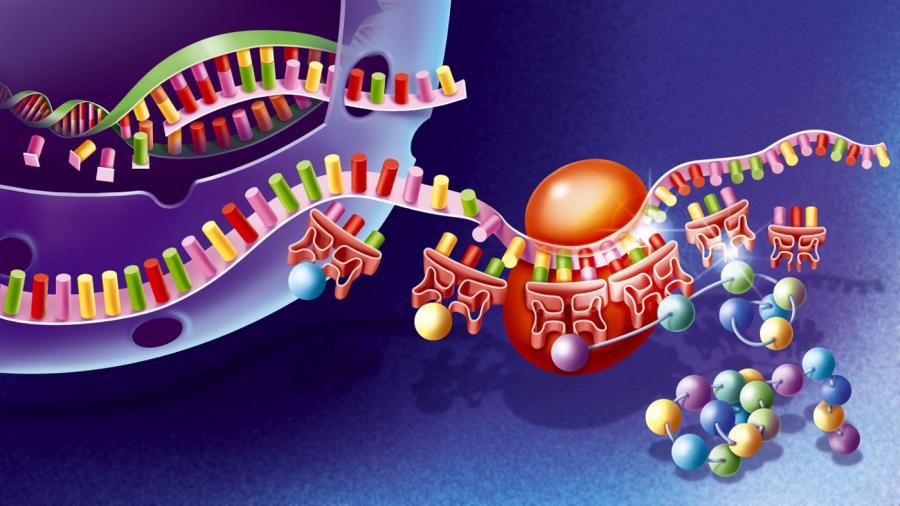What Is Protein Synthesis?

Protein synthesis is a biological process that allows individual cells to build specific proteins. Both DNA (deoxyribonucleic acid)and RNA (ribonucleic acids) are involved in the process, which is initiated in the cell’s nucleus. The actual process of protein synthesis takes place in the cell cytoplasm, and it occurs on multiple ribosomes simultaneously.
During protein synthesis, amino acids arrange in a linear fashion through an intricate interaction between ribosomal RNA, transfer RNA, messenger RNA and a variety of enzymes. The amino acids connect to each other in a specific order. This order is determined by nucleotide sequence in the DNA. The processes of transcription and translation also play an integral part in the overall sequence of events. If protein synthesis fails to occur, cells have difficulty dividing, repairing themselves or contributing to the organism as a whole. It is crucial to repairing damage to organelles and adding new ones after the cells divide. An example is how the protein hemoglobin, which is essential for distributing oxygen throughout the body, only exists because it is made by the blood stem cells in red bone marrow. Without this interaction, the entire organism suffers. A living cell has the ability to synthesize hundreds of separate proteins per second.





